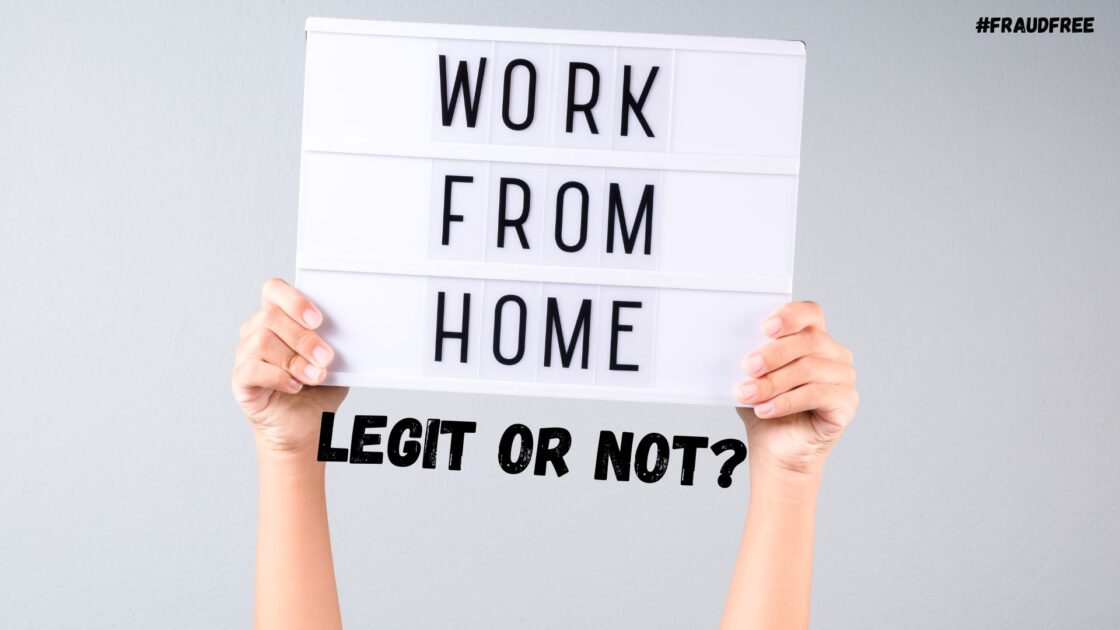Let’s be honest, working from home sounds like a dream. Flexible hours, no traffic, comfy clothes, and all from the comfort of your living room. However, here’s the problem: scammers are aware of this, too. And over the past few years, they’ve gotten smarter, bolder, and even more convincing. So, how to tell if a work from home job is legit?
Well, just a few signs that are required to spot such fraud. For example, If someone offers you a “dream job” that promises ₹5,000 per day for copy-pasting or watching videos, then most likely it is a scam.
Work from Home Job Scams
During and after the pandemic, remote jobs exploded in popularity. But with that, scamsters found a new playground. They pose as HR representatives, recruiters, or even representatives of reputable companies and lure people into paying money or sharing sensitive data.
You might receive:
- A Telegram or WhatsApp message about a “typing job”
- A call offering a guaranteed income with zero experience
- A link asking you to download an app to “start work”
If any of this sounds familiar, hit pause—and read on.
How to Spot Work from Home Job Scams?
Here are some common red flags that instantly signal job scams in India:
1. They Ask for Money First
No legit employer will ask you to pay registration fees, buy training material, or “unlock” work. If a job requires payment to get started, walk away.
“Pay ₹499 to start your freelance project” = SCAM
2. Too Good to Be True
If the job promises:
- ₹10,000 for 2 hours of work
- “Guaranteed” daily income
- No interview, no skills required
…it’s likely too good to be true.
3. Vague Job Descriptions
A legit job will describe what you’ll be doing clearly. Scams keep things vague, like:
- “Simple tasks on mobile”
- “Social media engagement”
- “Earn by liking videos”
4. No Verifiable Company Info
If you can’t find:
- A company website
- A LinkedIn profile
- Verified contact details
…it’s a red flag. Most scam companies have no digital footprint or a fake one.
5. Pressuring You to Act Fast
Scammers want you to act before you think. Phrases like:
- “Only 5 slots left.”
- “Immediate joining, no questions asked”
…are meant to trigger panic and impulse.
How to Avoid Work From Home Job Scams?
Before saying yes to any work-from-home offer:
- Research the company: Check their website, reviews, and LinkedIn.
- Verify the recruiter’s email: Legit recruiters use company domains (e.g., @xyz.com, not @gmail.com).
- Ask detailed questions: What are the tasks? What tools will be used? Who will you report to?
- Never pay upfront fees: No company or recruiter asks for upfront payment or any kind of deposit.
- Don’t share personal documents: Always verify the job source and company before sharing details like Aadhar, PAN, or bank info.
Where to Report Job Scams?
If you’ve been scammed or spotted a fake job ad, here’s how to report it:
- File a cyber crime complaint and report the case under Job Frauds.
- Report it to national consumer helpline forum.
- Report your bank about the fraud and request to block the account.
- To make your case stronger, lodge an FIR.
Need help? Register with us now and we will assist you with the complete process and also in proper documentation that help to recover losses easily.
Final Thoughts
Work-from-home is a real opportunity, but it also attracts real fraud. Stay curious, verify every detail, and never act out of fear or urgency. When in doubt, ask someone experienced or simply walk away.
If you’re ever unsure whether a job is legit, drop us a message. It’s better to double-check than to lose money, or worse, your data.







